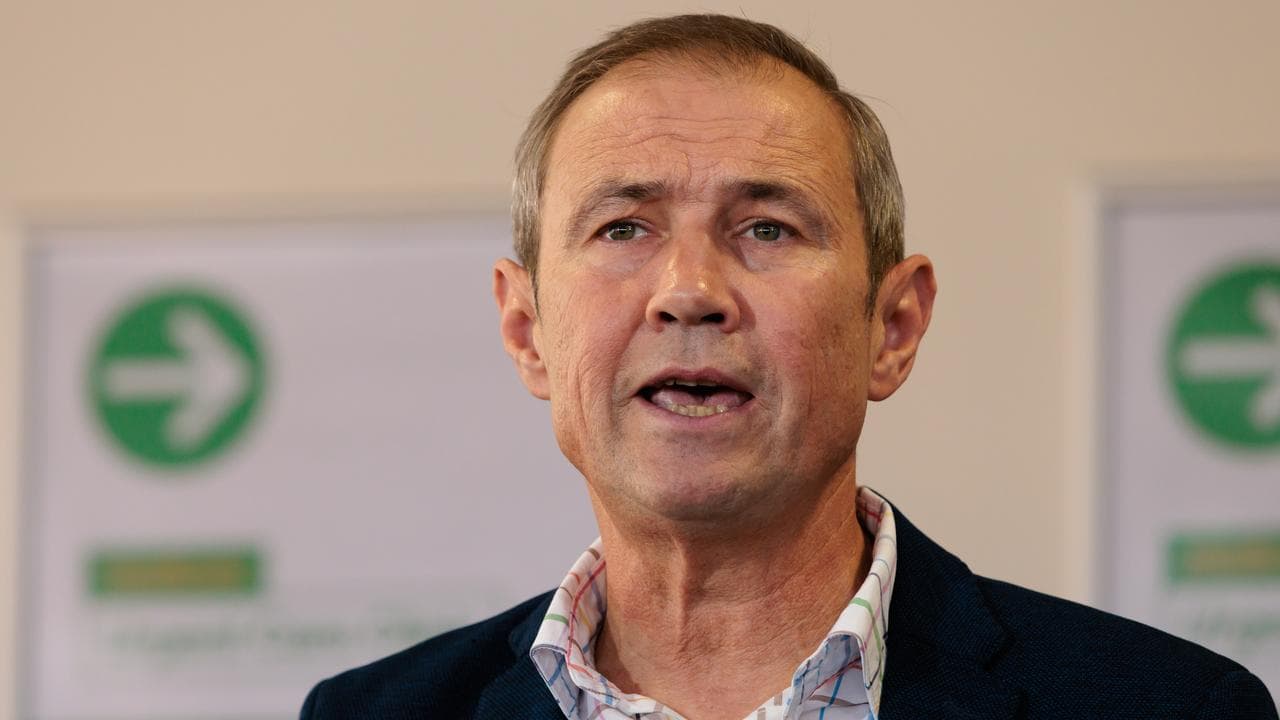
The West Australian government says it's still trying to find a way forward on its controversial cultural heritage laws, amid reports it plans to dump the month-old changes.
Senior Labor frontbencher Stephen Dawson would not confirm reports first cited in The West Australian that the laws would be scrapped in a "matter of days".
“No decision has been made by government at this stage,” the emergency services minister told reporters in Perth on Saturday.
“I’m not denying anything, what I am saying is the conversations continue between the state government and the various stakeholders about the legislation and the way forward."
The minister would not be drawn on a timeline, saying only that the government would decide "in the future"
According to The West Australian, the Labor government foreshadowed an about-face at a briefing with big resources companies and Indigenous groups on Friday.
The new Aboriginal Cultural Heritage Act laws came into effect on July 1, after Roger Cook's government resisted calls from pastoralists and the opposition to delay their introduction.
WA's previous laws dated back to the 1970s and notably allowed the state's Aboriginal affairs minister to grant land users permission to disturb cultural heritage sites.
Rio Tinto had ministerial approval in 2020 when it blew up the 46,000-year-old Juukan Gorge rock shelters, sparking global condemnation and devastating traditional owners.
The new system abolished the Section 18 approvals process and placed an emphasis on agreements between land users and traditional owners.
But there were deep concerns about the compliance requirements, some of which were only been made clear days before the laws came into effect.
The Puutu Kunti Kurrama and Pinikura Aboriginal Corporation, the traditional owners of Juukan Gorge, said it was devastated, angered and felt betrayed in the wake of reports the government could backflip on the laws.
While the laws were not perfect, they were better than what they replaced, corporation chairman Terry Drage said.
“Fix the guidelines, which are the biggest problem, not scrap the act," Mr Drage said.
He also called on the federal government to proceed with an Australia-wide regime for cultural heritage protection, saying the preservation of heritage sites was non-negotiable for Aboriginal and Torres Strait Islander people.
The corporation's land and heritage management director Dr Jordan Ralph said the organisation was considering withdrawing from heritage surveys and negotiations until the state government could give First Nations people clarity.
Chief executive Grant Wilson added the corporation was yet to speak with the government about its intentions.
“Fortunately for us, we are negotiating strong co-management agreements with mining proponents, which provide each party the clarity that is lacking in the legislation," Mr Wilson said.
"It now looks like we will be relying on our agreements to see us through this mess.”
More than 25 new local Aboriginal cultural heritage services were being set up to manage sites within particular regions.
The government had flagged a "light touch" approach in the first 12 months to ensure stakeholders understood their obligations.
However, the laws, which were proposed and established under ex-premier Mark McGowan, have proven controversial for Mr Cook, who has been bedding down his leadership since taking over in June.
Critics argued they were too complex and landowners feared their activities would be impacted.
Landowners concerned about the new laws were planning to gather on Tuesday at state parliament to call for changes to protect freehold property rights.
WA opposition leader Shane Love said if the reports were true it would be the "biggest backflip by a government in many years".
"What we've seen is a government that has rammed a piece of legislation through and failed to implement it ... Its own members are calling it botched," he told reporters in Perth on Saturday.
Mr Love said he wanted new laws that would "actually protect heritage" and also protect businesses and the property rights of landowners.




